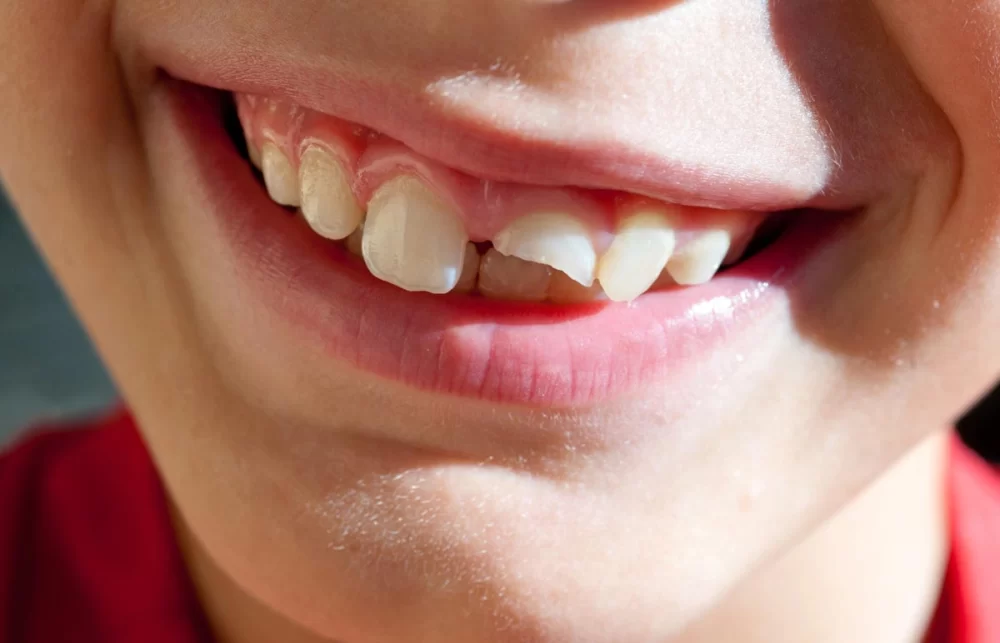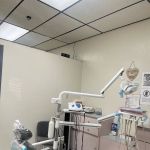
- Understanding-a-Chipped-Tooth-and-its-Implications
- Immediate-Actions-to-Take-If-You-Have-a-Chipped-Tooth
- Professional-Treatment-Options-for-Chipped-Teeth
- Preventive-Measures-to-Avoid-Future-Tooth-Chipping
- Real-Life-Case-Study-and-Insights
- Why-Choose-Dentistry-Toothtruth-for-Your-Dental-Needs
1. Understanding a Chipped Tooth and Its Implications
A chipped tooth occurs when a fragment of the enamel breaks off, often caused by accidents, biting hard objects, or dental decay weakening the tooth structure. Although it might seem minor, a chipped tooth can lead to increased sensitivity, discomfort, and if untreated, may result in more severe dental issues such as infection or further structural damage.
Recognizing the extent of the chip is crucial. Small chips might only affect the enamel surface, while larger chips could expose the dentin or even the pulp, leading to pain or infection. Understanding the damage will guide the urgency and type of treatment required.
From a dental health perspective, addressing a chipped tooth promptly not only preserves the aesthetics of your smile but also prevents long-term complications. Whether the chip is visible or causing discomfort, it’s important to evaluate your symptoms carefully.
1.1 Common Causes of Tooth Chipping
Tooth chipping can happen for various reasons. Common causes include biting down on hard foods like nuts or candy, accidental falls or sports injuries, and even habits like teeth grinding (bruxism). In some cases, untreated cavities or weakened enamel from acidic foods and poor oral hygiene make the teeth more susceptible to chipping.
It’s important to identify the underlying cause because it helps in both treatment and prevention. For example, if grinding is the cause, a custom night guard might be recommended after repairing the tooth.
1.2 How to Identify the Severity of the Chip
Not all chips are the same. You can often tell a minor chip by a small rough edge on the tooth that may not cause pain. More significant chips, however, can cause sharp pain, sensitivity to hot or cold, or visible cracks. If the chip exposes the inner layers of the tooth, immediate dental attention is necessary.
2. Immediate Actions to Take If You Have a Chipped Tooth
Knowing what to do if you have a chipped tooth can make a big difference in the outcome. The first steps focus on minimizing pain, preventing infection, and protecting the damaged tooth until you see a dentist.
2.1 Stay Calm and Assess the Situation
While it’s natural to feel alarmed, staying calm helps you respond effectively. Rinse your mouth gently with warm water to clean the area. Avoid using the chipped tooth for chewing to prevent further damage.
2.2 Manage Pain and Sensitivity
If you experience pain, over-the-counter pain relievers like ibuprofen can help. Applying a cold compress to the outside of your mouth or cheek can reduce swelling. Avoid extremely hot or cold foods, which may increase sensitivity.
2.3 Protect the Tooth Temporarily
If a sharp edge of the chipped tooth is irritating your tongue or cheek, you can cover it temporarily with dental wax or sugarless chewing gum. Avoid hard or sticky foods until professional treatment is obtained.
2.4 Schedule a Dental Appointment Promptly
Even if pain is minimal, it’s essential to see a dental professional as soon as possible. Early intervention prevents complications such as infection or further cracking.
3. Professional Treatment Options for Chipped Teeth
The treatment for a chipped tooth depends on the size, location, and extent of damage. Modern dentistry offers a variety of solutions tailored to restore function and appearance.
3.1 Dental Bonding for Minor Chips
For small chips, dental bonding is a popular and cost-effective option. This procedure involves applying a tooth-colored resin to reshape and seal the damaged area. The process is quick and usually completed in one visit.
3.2 Veneers and Crowns for Larger Damage
If the chip is larger or affects the tooth’s structural integrity, veneers or crowns might be recommended. Veneers are thin shells bonded to the front surface of the tooth, improving aesthetics. Crowns, on the other hand, cover the entire tooth to provide strength and protection.
3.3 Root Canal Treatment for Severe Cases
When the chip exposes the pulp or causes nerve damage, a root canal may be necessary before restoring the tooth. This treatment removes infected tissue and prevents abscess formation.
3.4 Importance of Timely Treatment
Prompt dental care ensures the best outcome. Delaying treatment can lead to worsening pain, infection, or tooth loss. Professional evaluation allows for the most appropriate method to restore your smile efficiently.
4. Preventive Measures to Avoid Future Tooth Chipping
Prevention is always better than cure. Taking steps to protect your teeth can reduce the risk of chips and cracks.
4.1 Good Oral Hygiene Practices
Keeping your teeth strong through regular brushing, flossing, and dental check-ups is foundational. Healthy enamel resists damage better.
4.2 Avoid Hard and Sticky Foods
Limiting intake of foods that challenge your teeth, like ice, hard candy, and sticky sweets, can reduce accidental chipping.
4.3 Use Protective Gear During Sports
Wearing mouthguards during high-impact activities is crucial for preventing dental injuries. Custom-fitted guards offer the best protection.
4.4 Addressing Teeth Grinding
If you grind your teeth, a custom night guard from your dentist can protect enamel and prevent chips.
5. Real-Life Case Study and Insights
Consider the story of Emily, a 28-year-old who chipped her front tooth while enjoying a crunchy snack. Initially ignoring the chip due to lack of pain, she later experienced increased sensitivity and discomfort. After consulting a dentist, she underwent dental bonding which restored her tooth’s appearance and function quickly. This case highlights the importance of early care even when symptoms seem mild.
Emily’s experience is common—many people underestimate the impact of a chipped tooth until complications arise. Her proactive choice to seek treatment through trusted dental services ensured long-term oral health and boosted her confidence.
6. Why Choose Dentistry Toothtruth for Your Dental Needs
When facing dental emergencies such as a chipped tooth, having access to expert care and quality products makes all the difference. Dentistry Toothtruth offers a wide range of reliable dental services, from emergency care to cosmetic repairs, and premium dental products tailored to your needs.
Whether you require professional consultation, restorative treatments, or preventive care solutions, Dentistry Toothtruth provides trustworthy recommendations and support to help you maintain a healthy and beautiful smile.
Remember, a chipped tooth is manageable with the right approach and timely professional guidance. Trust Dentistry Toothtruth to help you find the best options for your dental health journey.







 Tyler Dental Center5.0 (7 review)
Tyler Dental Center5.0 (7 review) Mona Lisa Dental4.0 (116 review)
Mona Lisa Dental4.0 (116 review) River Run Dental4.0 (1958 review)
River Run Dental4.0 (1958 review) Access Dental Group Manhattan PLLC3.0 (18 review)
Access Dental Group Manhattan PLLC3.0 (18 review) Premier Dental Center4.0 (324 review)
Premier Dental Center4.0 (324 review) Divine Dentistry4.0 (434 review)
Divine Dentistry4.0 (434 review) The Importance of Oral Health Education During Pregnancy for a Healthy Pregnancy
The Importance of Oral Health Education During Pregnancy for a Healthy Pregnancy Best Tips for Brushing Your Teeth Properly for Healthy Gums: Essential Techniques for Oral Health
Best Tips for Brushing Your Teeth Properly for Healthy Gums: Essential Techniques for Oral Health Why Skipping Dental Checkups Can Lead to Bigger Oral Health Problems
Why Skipping Dental Checkups Can Lead to Bigger Oral Health Problems Advantages of Porcelain Dental Restorations
Advantages of Porcelain Dental Restorations How Can Diabetes Cause Tooth and Gum Problems? Preventing and Managing Oral Health Issues
How Can Diabetes Cause Tooth and Gum Problems? Preventing and Managing Oral Health Issues Healthy Habits for Promoting Good Oral Health and Hygiene: Tips for a Healthy Smile
Healthy Habits for Promoting Good Oral Health and Hygiene: Tips for a Healthy Smile